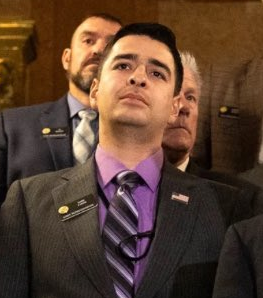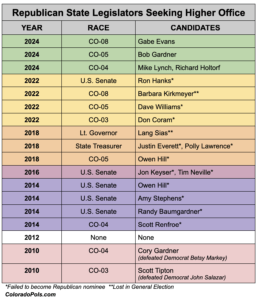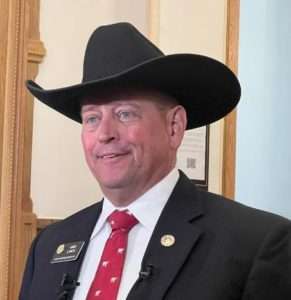
President (To Win Colorado)
See Full Big Line
(D) Kamala Harris
(R) Donald Trump
80%↑
20%

CO-01 (Denver)
See Full Big Line
(D) Diana DeGette*
(R) V. Archuleta
98%
2%

CO-02 (Boulder-ish)
See Full Big Line
(D) Joe Neguse*
(R) Marshall Dawson
95%
5%

CO-03 (West & Southern CO)
See Full Big Line
(R) Jeff Hurd
(D) Adam Frisch
50%
50%

CO-04 (Northeast-ish Colorado)
See Full Big Line
(R) Lauren Boebert
(D) Trisha Calvarese
90%
10%

CO-05 (Colorado Springs)
See Full Big Line
(R) Jeff Crank
(D) River Gassen
80%
20%

CO-06 (Aurora)
See Full Big Line
(D) Jason Crow*
(R) John Fabbricatore
90%
10%

CO-07 (Jefferson County)
See Full Big Line
(D) B. Pettersen
(R) Sergei Matveyuk
90%
10%

CO-08 (Northern Colo.)
See Full Big Line
(D) Yadira Caraveo
(R) Gabe Evans
52%↑
48%↓

State Senate Majority
See Full Big Line
DEMOCRATS
REPUBLICANS
80%
20%

State House Majority
See Full Big Line
DEMOCRATS
REPUBLICANS
95%
5%
 February 13, 2024 11:36 AM UTC
February 13, 2024 11:36 AM UTC 2 Comments
2 Comments



Wasn't Lang Sias in the leg when he tried for Lt. Gov. I think he fits onto the list of the curse, too.
Very true